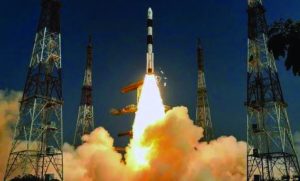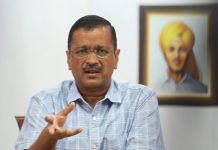 With Defence Research and Development Organisation (DRDO) blowing up a satellite in a Low Earth
With Defence Research and Development Organisation (DRDO) blowing up a satellite in a Low Earth
Orbit (LEO) into smithereens, India has entered an elite space club. Under Mission Shakti, carried out on March 27, India successfully tested its Anti-Satellite (A-SAT) weapon in the space for the very first time. Only three other countries — the US, Russia, and China — had previously demonstrated this capability.
Interestingly, the DRDO had made public plans of such a project during the previous government. However, this key milestone came to fruition only recently. The launch of the Agni V in 2012 was the first step towards developing India’s anti-ASAT capability. Plans had also been announced for an exo-atmospheric kill vehicle.
In August 2018, the DRDO had successfully tested its indigenously designed and manufactured advanced air defence interceptor missile. The missile had destroyed an incoming medium-range ballistic missile target amid many simulated decoy warheads, marking a major milestone in India’s plans to develop an indigenously developed ballistic missile defence system.
Initiatives such as Mission Shakti are not aimed at invading other countries. India never did that even in the face of extreme provocation. It is to protect the country from hostile nations attempting to invade India’s airspace. During the Cold War era, for example, the space race between rivals US and Russia had threatened to trigger a worldwide conflict that could have brought about the end of human civilisation. But it also spawned pioneering efforts in unmanned space explorations to Moon, Mars and Venus, the launching of satellites and human spaceflight.
The display of technological prowess through the test accentuates the military dimension and brings into play an overwhelming assurance of what the Ministry of External Affairs describes as a ‘credible deterrence’ against attacks on India’s growing number of space assets. However, the country needs to remain cautious and should avoid getting provocative in any way. Too much boasting may goad its none-too-friendly neighbour Pakistan into a competitive frenzy. Also, in the absence of a credible threat to India’s space assets from China or any other country with Anti-Satellite missile capabilities, whether the ‘deterrence’ sought to be achieved by this test would lead to a more stable strategic security environment is not certain.
India has so far not shown any inclination towards space weaponization. It will be better for one and all in the region if it continues to remain so. There are no two views that foundations of peace should rest on strong military capabilities. But then, projects like Shakti should be aimed at muscle-building and not muscle-flexing.
The timing of the A-SAT test, when the country is already in election mode, does raise concerns whether this was aimed at encashing the long-due project just ahead of Lok Sabha elections. Political parties should refrain from using the mission’s success for gains in the election season. India’s premier institutions such as DRDO and ISRO should be protected from any sort of political meddling at all cost.
letters@tehelka.com












